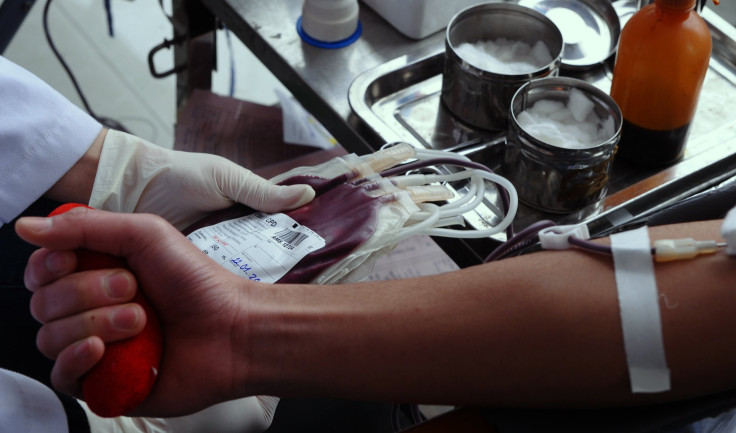France Ban On Blood Donations From Gay And Bisexual Men To Be Relaxed, 'Lifting A Taboo'

Gay and bisexual men will soon be able to donate blood in France with the newly announced rollback of a decadesold policy left over from the 1980s AIDS scare. The country's health minister, Marisol Touraine, revealed plans Wednesday to lift the lifetime ban on certain gay donors and added that the policy would likely relax even further going forward. The decision was viewed as a partial victory for gay rights, Agence France Presse reported.
"Giving blood is an act of generosity, of civic responsibility, and the donor’s sexual orientation cannot be a condition," Touraine said. "While respecting patient safety, today we are lifting a taboo."
Starting in 2016, gay men who have been sexually inactive for a year can donate red cells, platelets and plasma. Gay men who have been sexually inactive for four months can give their plasma, as can people in monogamous relationships, according to AFP. The government will then analyze the donations and risk and consider loosening its standards even more.
The decision comes about six months after the European Court of Justice ruled that France could only ban gay donors if there was no "less onerous" way of keeping people who receive the blood safe from HIV, the Wall Street Journal reported. A 2010 study found that HIV infection rates were 200 times higher in homosexual French men than heterosexual ones.
France joins countries like Japan and Australia in switching its ban to only restrict sexually active gay men from donating blood, the Associated Press reported. The United States' Food and Drug Administration proposed implementing the same rule earlier this year.
SOS Homophobie, a gay rights group based in France, issued a statement Wednesday celebrating the lifting of the ban but pushing for more action to combat discrimination. "SOS Homophobie welcomes the end of the systematic exclusion of homosexual and bisexual men's blood donations but regrets strongly maintaining discrimination based on sexual orientation," it wrote on its website. "This development does not end the stigmatization of gay and bisexual men and thus maintains homophobia and biphobia."
© Copyright IBTimes 2025. All rights reserved.






















